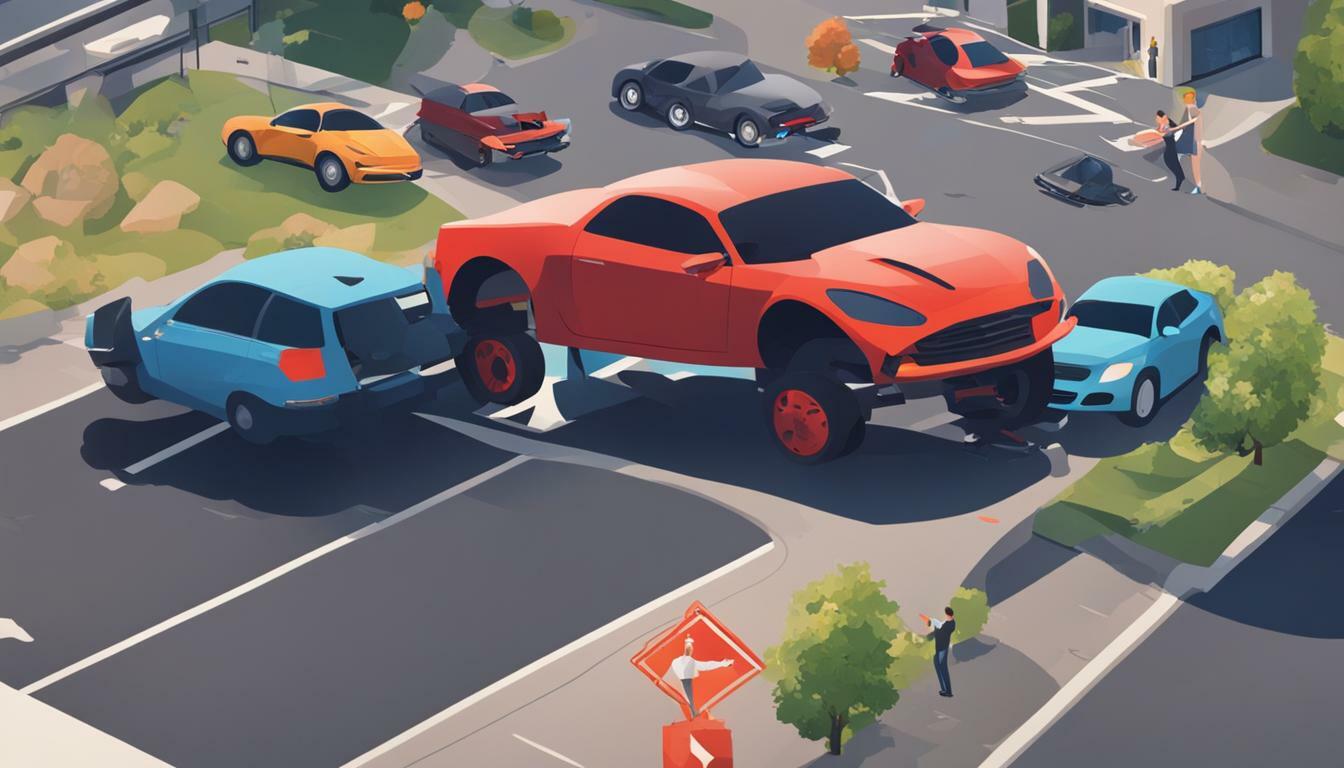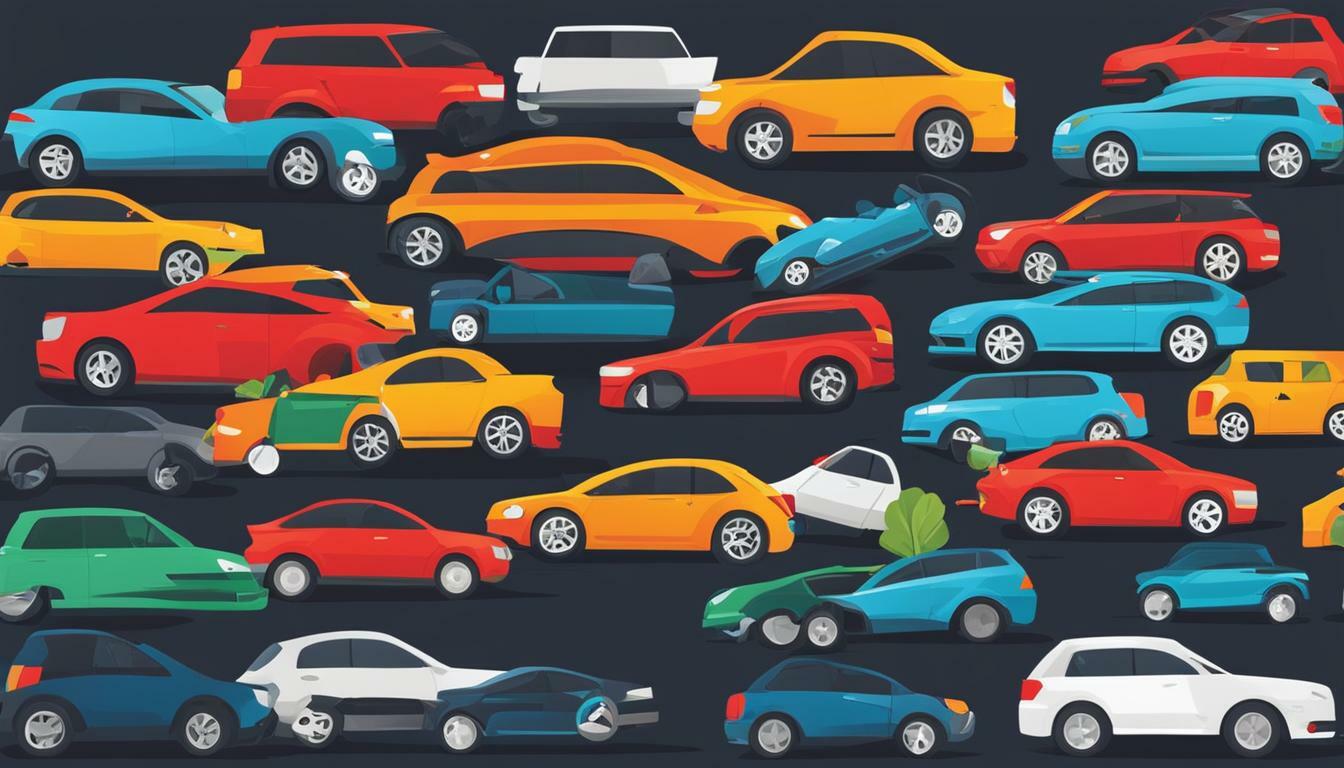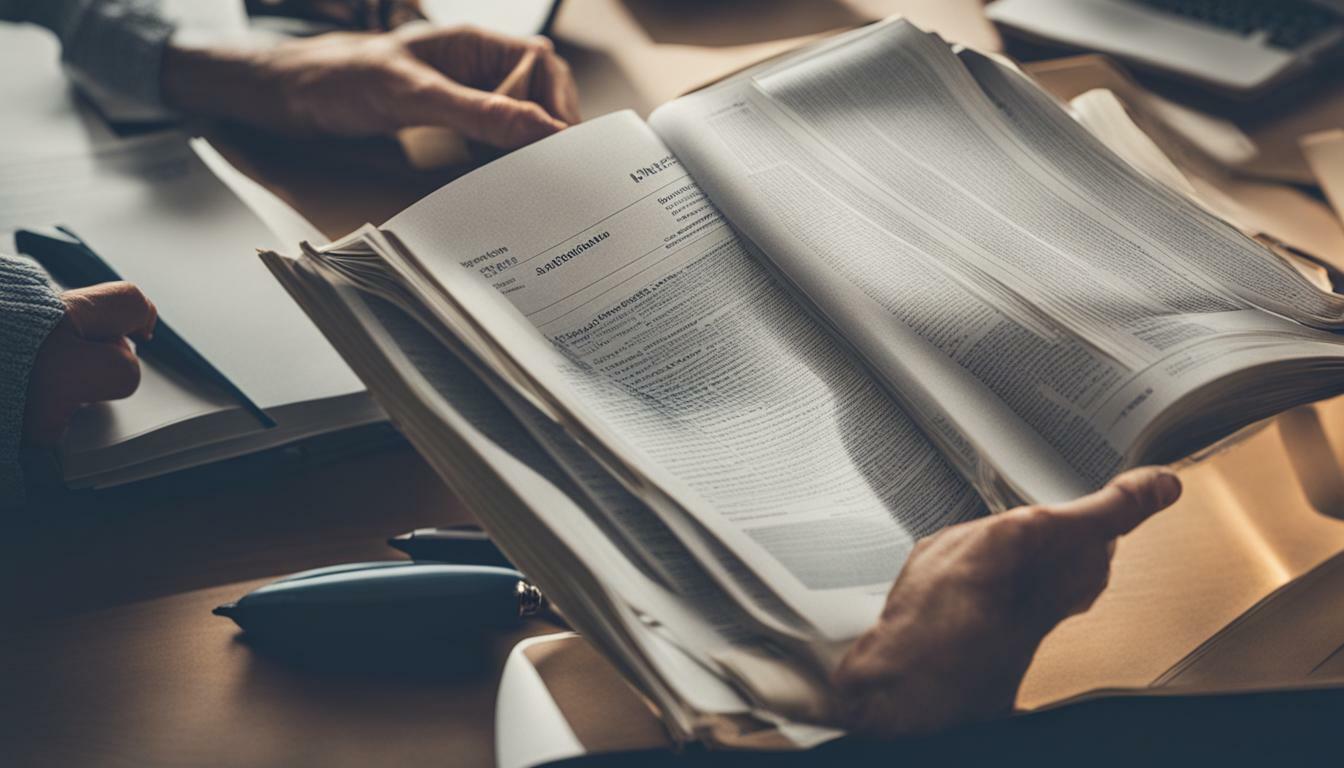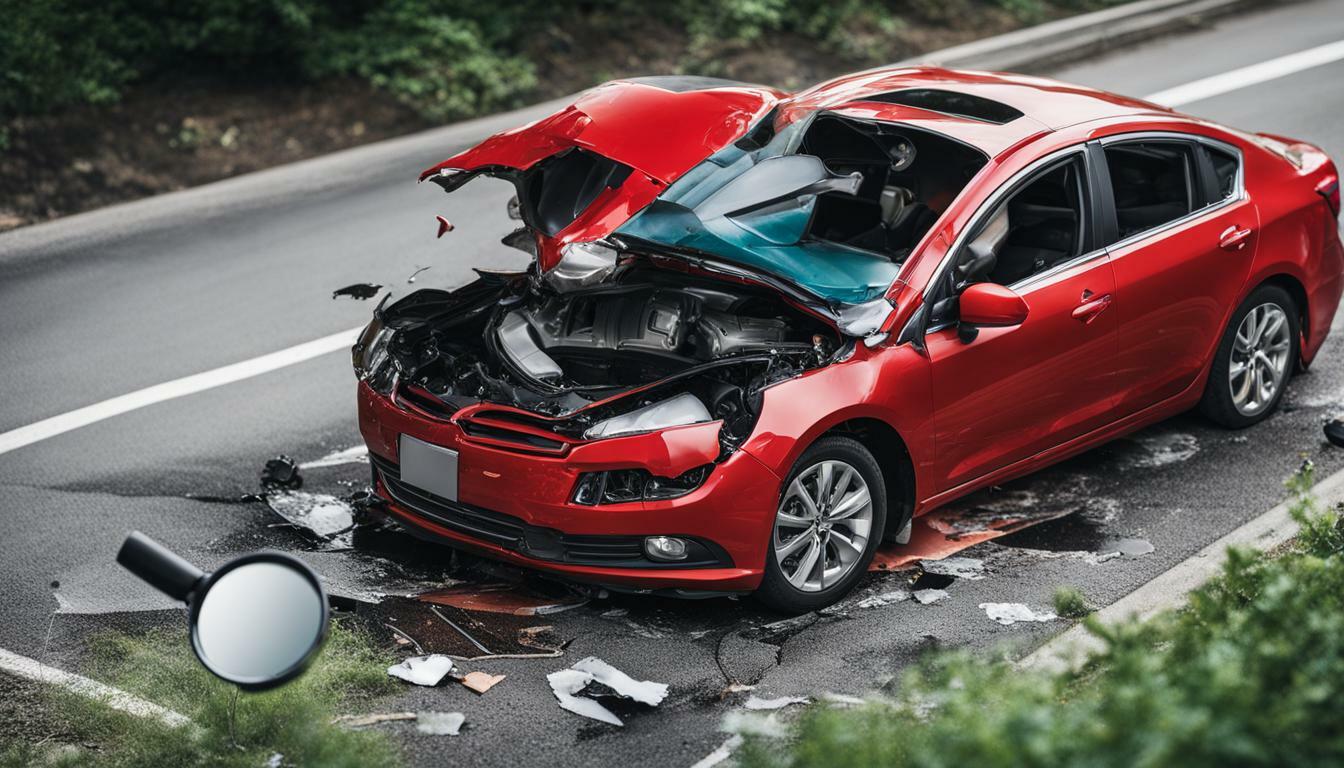As a driver, it is essential to have a solid understanding of car insurance coverage. One of the most significant aspects of auto insurance is the difference between collision insurance and liability insurance. These two types of coverage can significantly impact your finances in the event of an accident.
In this guide, I will provide a comprehensive overview of collision insurance and liability insurance, their differences, and why they are essential parts of your overall auto insurance coverage.
Key Takeaways:
- The difference between collision insurance and liability insurance is significant, and both are essential components of your auto insurance policy.
- Collision insurance provides coverage for damages to your vehicle regardless of who is at fault.
- Liability insurance provides coverage for damages and injuries you may cause to others in an accident where you are at fault.
What is Collision Insurance?
Collision insurance is a type of car insurance coverage that is designed to protect you financially in case your vehicle is involved in a collision, regardless of who is at fault. This type of coverage typically includes payment for damages to your own vehicle, as well as any injuries sustained in the accident.
Comprehensive insurance, on the other hand, covers damages to your vehicle that result from non-collision events, such as theft, vandalism, or natural disasters. Collision insurance is often paired with comprehensive insurance to provide comprehensive protection.
The key feature of collision insurance is that it covers damages to your own vehicle, even if you are at fault in the accident. This makes it an important type of coverage to have, as car repairs can be expensive and may be necessary to get your vehicle back on the road.
Property damage coverage is another important component of collision insurance. This coverage pays for damages to other people’s property that you may have caused in an accident, such as damage to another person’s car or a fence. It is important to note that collision insurance only covers damages to your own vehicle, not property damage caused by you.
| Key Points: |
|---|
| Collision insurance covers damages to your own vehicle in the event of a collision, regardless of who is at fault. |
| Comprehensive insurance covers damages to your vehicle that result from non-collision events, such as theft, vandalism, or natural disasters. |
| Property damage coverage pays for damages to other people’s property that you may have caused in an accident. |
Overall, collision insurance is an essential component of any car insurance coverage plan. By having both collision and liability insurance, you can ensure that you are fully protected in case of an accident or other unforeseen event.
Understanding Liability Insurance
Liability insurance is a type of car insurance coverage that protects you financially if you cause an accident and are held responsible for the damages. This insurance coverage is a requirement in most states in the United States and is designed to cover two primary areas: bodily injury and property damage.
Bodily Injury Coverage
Bodily injury liability coverage is essential in case you cause an accident that results in injuries to other people. This coverage pays for medical expenses, lost wages, and other related costs that the injured party incurs as a result of the accident. It also protects you against any claims or lawsuits that may arise.
It is important to note that bodily injury liability coverage doesn’t cover your own injuries. Instead, it is designed to protect other drivers, passengers, pedestrians, and bicyclists who may be involved in an accident that you caused.
Property Damage Coverage
Property damage liability coverage pays for any damage that you cause to someone else’s property, including their car. Like bodily injury liability coverage, property damage liability coverage also helps protect you against any claims or lawsuits that may arise in the event of an accident.
It is important to note that property damage liability coverage doesn’t cover damage to your own vehicle. If you are at fault in an accident, you will need collision coverage to cover the cost of repairing or replacing your car.
It is crucial to have adequate liability insurance coverage to protect yourself financially in case of an accident. In general, experts recommend carrying at least $100,000 per person and $300,000 per accident in bodily injury coverage, as well as $100,000 in property damage coverage.
Collision Insurance vs Liability Insurance: A Comparison
When it comes to car insurance coverage, collision insurance and liability insurance are two types of coverage that every driver should be familiar with. While both types of insurance provide financial protection in case of an accident, they cover different types of damage and have separate functions within your overall insurance policy.
Collision insurance provides coverage for damages to your own vehicle resulting from a collision, regardless of who is at fault. This includes collisions with other vehicles, objects, or even potholes. Collision coverage can also include damage to your car from a rollover or collision with an animal. However, collision insurance does not cover damage to other vehicles, property, or injuries sustained by others.
Liability insurance, on the other hand, provides protection against damage or injuries that you cause to others while driving. This includes both bodily injury coverage and property damage coverage. Bodily injury coverage provides compensation for medical expenses, lost wages, and other damages that result from injuries sustained by others in an accident where you are at fault. Property damage coverage provides compensation for damage to other vehicles or property.
It’s important to note that liability insurance does not cover damage to your own vehicle or injuries sustained by you or your passengers. That’s where collision insurance comes in, as it covers damages to your own vehicle regardless of who is at fault.
When it comes to coverage comparison, collision insurance is often more expensive than liability insurance since it covers damages to your own vehicle, but liability insurance is generally required by law in most states. In fact, liability insurance is the minimum coverage required by law in most states, while collision insurance is optional. However, if you have a loan or lease on your vehicle, your lender or leasing company may require you to carry collision insurance to protect their investment in your car.
Overall, the choice between collision insurance and liability insurance comes down to your specific needs and budget. While liability insurance is required by law and provides protection against damages you cause to others, collision insurance provides additional protection for your own vehicle. Both types of insurance are critical components of your overall insurance policy, and it’s important to weigh the cost and benefits of each type of coverage to make an informed decision that best meets your needs.
Conclusion
In conclusion, understanding the difference between collision insurance and liability insurance is critical for anyone looking to purchase auto insurance coverage. Both types of insurance provide valuable protection, but they cover different aspects of an accident. Collision insurance covers damages to your own vehicle in the event of an accident, regardless of who is at fault. On the other hand, liability insurance is designed to protect you financially if you are at fault for an accident and cause bodily injury or property damage to others.
It’s essential to note that having both types of insurance is crucial for comprehensive protection. Collision insurance and liability insurance complement each other and provide coverage for different scenarios. As a car owner, it’s essential to have an auto insurance policy that includes both types of coverage.
When selecting an insurance policy, consider the amount of coverage you need and your budget. It’s also essential to shop around and compare insurance policies from multiple providers to find the best coverage at the most affordable price.
In summary, collision insurance and liability insurance are two types of car insurance coverage that are critical for protecting yourself and your vehicle. Make sure to include both types of insurance in your auto insurance policy to avoid financial hardships in the event of an accident.
FAQ
Q: What is collision insurance?
A: Collision insurance is a type of auto insurance coverage that pays for damage to your own vehicle in the event of a collision, regardless of who is at fault.
Q: What does collision insurance cover?
A: Collision insurance covers damage to your own vehicle caused by a collision with another vehicle or object, such as a tree or building.
Q: How does collision insurance work?
A: If you have collision insurance and your vehicle is involved in a collision, you will file a claim with your insurance company. They will then assess the damages and provide compensation, up to the coverage limits stated in your policy, minus any deductible you may have.
Q: What is liability insurance?
A: Liability insurance is a type of auto insurance coverage that pays for damages to other people and their property if you are at fault in an accident.
Q: What does liability insurance cover?
A: Liability insurance covers two main components: bodily injury coverage, which pays medical expenses, pain and suffering, and lost wages of the other party involved in an accident, and property damage coverage, which pays to repair or replacement of the other part. vehicle or property of the party.
Q: How does liability insurance work?
A: If you are at fault for an accident and have liability insurance, the other party involved will file a claim with their insurance company. Your insurance company will then handle the claim, including assessing damages and compensation, up to the coverage limits stated in your policy.
Q: What is the difference between collision insurance and liability insurance?
A: The main difference is that collision insurance covers damage to your own vehicle, while liability insurance covers damage to other people and their property. Collision insurance is optional, while liability insurance is usually required by law. Both types of insurance have different coverage limits and premiums.
Q: Can I have collision insurance without liability insurance?
A: In most cases, insurance companies require that you have liability insurance before offering collision insurance. Liability insurance is often considered a foundation of auto insurance coverage because it protects other people and their property in the event you are at fault in an accident.
Q: Do I need both collision insurance and liability insurance?
A: It is highly recommended to have collision insurance and liability insurance as part of your auto insurance policy. Collision insurance protects your own vehicle in the event of a collision, while liability insurance protects you financially if you cause damage or injury to other people or their property. Having both types of coverage ensures comprehensive protection.



